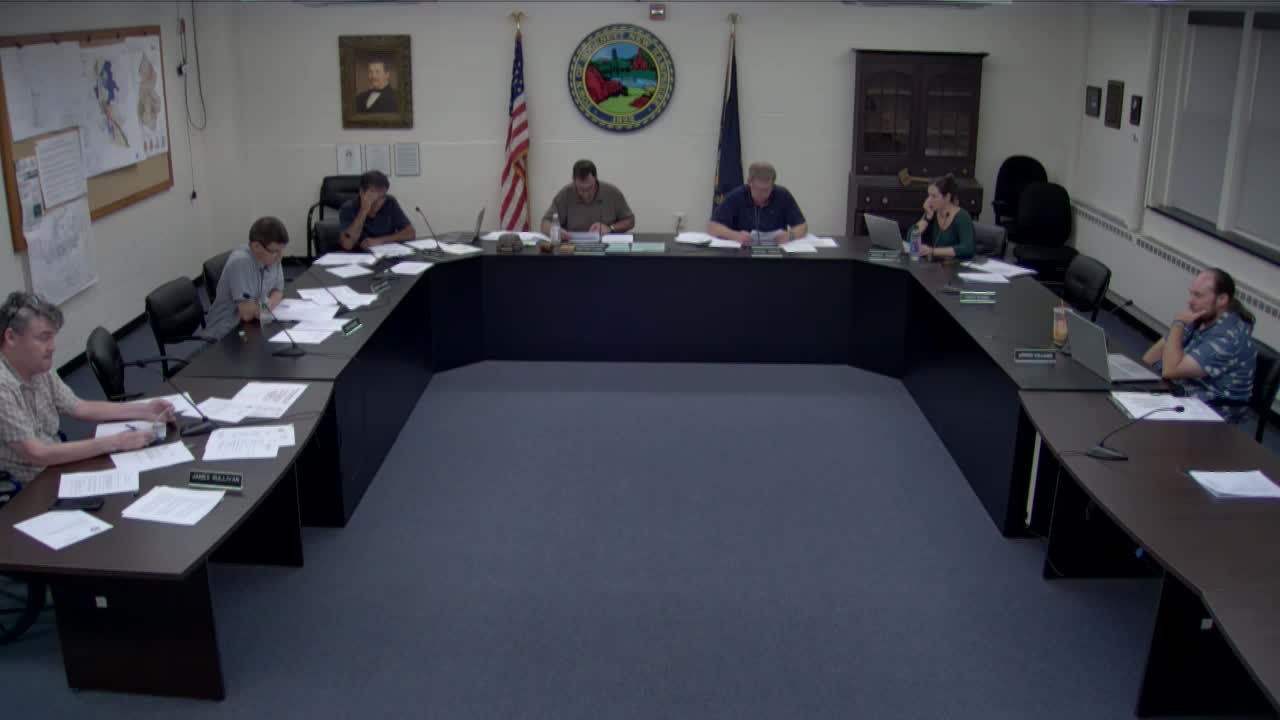Planning Board Discusses Amendments to Hooksett Parking Regulations Following State Law Change
August 04, 2025 | Hooksett, Merrimack County , New Hampshire
This article was created by AI summarizing key points discussed. AI makes mistakes, so for full details and context, please refer to the video of the full meeting. Please report any errors so we can fix them. Report an error »

In the heart of Hooksett, New Hampshire, the Planning Board convened on August 4, 2025, to address pressing issues surrounding parking regulations that could reshape the town's landscape. As members gathered under the fluorescent lights of the town hall, discussions centered on a recent state law mandating a minimum of one parking space for residential units, a shift that has sparked both concern and curiosity among residents and officials alike.
The new legislation, effective September 13, limits towns from requiring more than one parking space per residential unit, regardless of the size of the home. This has raised eyebrows, particularly as it contrasts with existing local regulations that often call for two spaces. The board acknowledged the confusion this creates, especially when considering the diverse types of housing in Hooksett, from sprawling single-family homes to compact apartments.
One notable voice in the discussion was that of Sam Danforth, a local resident who submitted a letter expressing his views on the parking requirements. Danforth argued for a reevaluation of parking policies, suggesting that excessive parking spaces not only waste valuable land but also contribute to urban sprawl and environmental degradation. He pointed out that many parking lots remain underutilized, even during peak times, and proposed that property owners should have the autonomy to determine their parking needs rather than adhering to rigid regulations.
The board members engaged with Danforth's concerns, recognizing the merit in his arguments while also clarifying the intent of the new law. They noted that while the legislation aims to simplify parking requirements, it does not eliminate the necessity for parking altogether. Instead, it encourages a more flexible approach, allowing developers to assess their own needs based on the specific context of their projects.
As the meeting progressed, the board deliberated on how to implement these changes effectively, balancing the need for adequate parking with the desire to foster a more walkable and community-oriented environment. The conversation highlighted a broader trend in urban planning, where cities are increasingly reconsidering the role of parking in shaping vibrant, sustainable neighborhoods.
With traffic congestion being a significant concern for Hooksett residents, the implications of these discussions extend beyond mere regulations. They touch on the future of the town's development, the potential for increased housing options, and the overall quality of life for its inhabitants. As the Planning Board prepares to vote on these amendments, the community watches closely, eager to see how these changes will unfold in the coming months.
The new legislation, effective September 13, limits towns from requiring more than one parking space per residential unit, regardless of the size of the home. This has raised eyebrows, particularly as it contrasts with existing local regulations that often call for two spaces. The board acknowledged the confusion this creates, especially when considering the diverse types of housing in Hooksett, from sprawling single-family homes to compact apartments.
One notable voice in the discussion was that of Sam Danforth, a local resident who submitted a letter expressing his views on the parking requirements. Danforth argued for a reevaluation of parking policies, suggesting that excessive parking spaces not only waste valuable land but also contribute to urban sprawl and environmental degradation. He pointed out that many parking lots remain underutilized, even during peak times, and proposed that property owners should have the autonomy to determine their parking needs rather than adhering to rigid regulations.
The board members engaged with Danforth's concerns, recognizing the merit in his arguments while also clarifying the intent of the new law. They noted that while the legislation aims to simplify parking requirements, it does not eliminate the necessity for parking altogether. Instead, it encourages a more flexible approach, allowing developers to assess their own needs based on the specific context of their projects.
As the meeting progressed, the board deliberated on how to implement these changes effectively, balancing the need for adequate parking with the desire to foster a more walkable and community-oriented environment. The conversation highlighted a broader trend in urban planning, where cities are increasingly reconsidering the role of parking in shaping vibrant, sustainable neighborhoods.
With traffic congestion being a significant concern for Hooksett residents, the implications of these discussions extend beyond mere regulations. They touch on the future of the town's development, the potential for increased housing options, and the overall quality of life for its inhabitants. As the Planning Board prepares to vote on these amendments, the community watches closely, eager to see how these changes will unfold in the coming months.
View full meeting
This article is based on a recent meeting—watch the full video and explore the complete transcript for deeper insights into the discussion.
View full meeting
